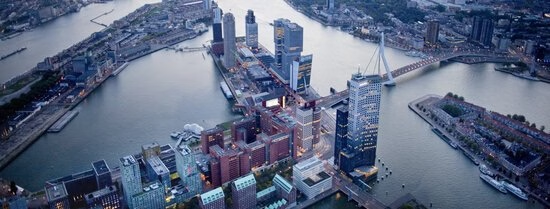Last week, Mayor Aboutaleb apologised for Rotterdam's past of slavery. This was based on publications by, among others, the historian Alex van Stipriaan. In an article on RTV Rijnmond, he explains what exactly was the role of Rotterdam in slavery: "Human trafficking involving 60,000 people cannot simply be erased from history."
Van Stipriaan writes about well-known Rotterdam families who traded in enslaved people and goods such as sugar or coffee. "Within the elite, there was almost no family that was not in some way related to the colonial and slavery past." Another example he gives: the Nieuwe Waterweg was partly built with money from farmers in the Dutch East Indies.
Apology from Mayor Aboutaleb
The investigation prompted the city council to enter into dialogue with the inhabitants of Rotterdam and the mayor wrote about this in a letter: "The municipal executive committee is moved by the stories of Rotterdammers about the significance of the colonial and slavery past for them and the suffering they experience to this day." After which an apology was offered on behalf of the Municipal executive. "The colonial legacy is visible in the contemporary culture, architecture and society of our international port city."
Read the entire article on RTV Rijnmond
'A meaningful moment'
Peggy Wijntuin, former city councilor and now Outreach Officer at Erasmus University Rotterdam, was one of the instigators of the research. In de Volkskrant, she calls the fact that apologies are now being made 'a meaningful moment'. "If you say you were wrong about this, you are saying quite a lot. Apologies are not an empty shell. One in eight Rotterdammers is a descendant of the colonial past. More and more people are realising that we are here because the Netherlands was there.
Past is inextricably linked to present-day city
In the article, she goes on to argue that this history should continue to be told: "On the quays of this city, ships left for the coasts of Africa with merchandise. To trade with African people, who were then sold to plantation owners across the Atlantic. Those ships returned with products such as sugar. Sugar such as was processed in the Rotterdam sugar factory Van Oordt." Wijntuin once did seasonal work in that factory. According to her, it illustrates the inextricable link between city and past.
Read the whole article on volkskrant.nl

- Professor
- Related content
- Related links
- Tell the Full Story of Colonialism - Interview with Alex van Stipriaan
More about our Diversity & Inclusion Office

